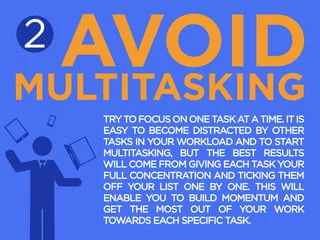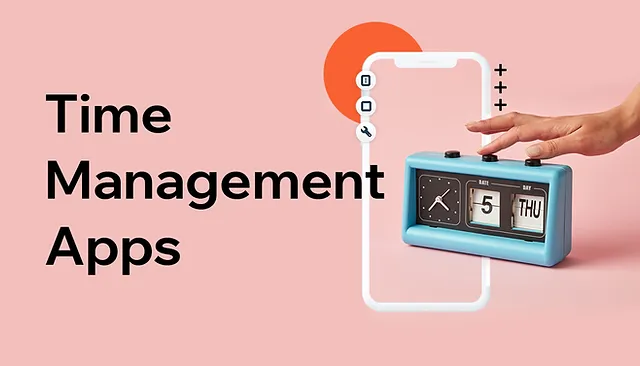
In today’s fast-paced world, the art of time management is more crucial than ever. Time is an irreplaceable asset, and how to make your time useful in your life is a question on the minds of many. If you’ve found yourself struggling to fit all your tasks into a 24-hour day, you’re not alone. But with a little strategy and a pinch of determination, you can make every second count.
In this article, we’ll explore the 7 Best Tips to Improve Your Time Management Skills and the resulting benefits of mastering this art.
7 Best Tips to Improve Your Time Management Skills
Determine Your Priorities

Understanding what truly matters in your life can make a world of difference. Start by making a list of your top priorities. What goals do you wish to achieve? What tasks will have the most impact? Once identified, allocate more time to these and reduce time spent on less significant activities.
Avoid Multitasking

Contrary to popular belief, multitasking can reduce your productivity. When you split your attention between various tasks, none get your undivided focus. Tackle one task at a time and give it your all.
Avoid Distractions

In our digital age, distractions are everywhere: notifications, social media, emails, and more. Designate specific times for checking these and stick to them. Consider using apps or tools that block distracting sites during work hours.
Learn to Say No

Sometimes, the key to effective time management is understanding when to decline. Overcommitting spreads you thin and reduces the quality of your work. Learn to say no to tasks that don’t align with your priorities.
Use Time Management Apps

In the age of technology, why not use it to our advantage? Time management apps can assist you in organizing, scheduling, and even blocking distractions. Some popular ones include Todoist, Trello, and Focus@Will.
Organize Your Day

Starting your day with a clear plan can set the tone for productivity. Spend a few minutes each morning (or the night before) mapping out your day. Determine which tasks are most important and tackle those first.
Take Breaks

While it might sound counterproductive, taking regular breaks can actually enhance productivity. These breaks refresh your mind, reduce stress, and prevent burnout. Consider techniques like the Pomodoro Technique, where you work for 25 minutes and then take a 5-minute break.
3 Benefits of Improving Your Time Management Skills
Mastering the art of time management isn’t just about getting more done. The effects ripple into various aspects of life, bringing about profound benefits.
Reduced Anxiety

Feeling perpetually behind schedule can be a major source of stress. But when you manage your time efficiently, tasks don’t pile up, and deadlines don’t loom as threats. This invariably leads to reduced anxiety levels.
Enhanced Work-Life Balance

Efficient time management means you can get more done in less time. This frees up moments for leisure, family, or personal hobbies. You’ll find that you don’t have to sacrifice personal time for work or vice versa.
Achieving Your Goals

Goals, big or small, become more achievable with good time management. By prioritizing tasks that align with your goals and eliminating or reducing time spent on unproductive activities, you pave a clear path to success.
The Journey of Time Management

While the steps to improve time management may seem straightforward, mastering them is a journey. Like any skill, it requires practice, patience, and a sprinkle of persistence. The best part? The rewards are plentiful, and the benefits transcend the workplace, spilling into every corner of life.
Embrace the Learning Curve
It’s essential to understand that nobody becomes a time management expert overnight. There might be days when distractions win, or you feel overwhelmed despite your best planning efforts. And that’s okay! The key is to learn from each experience and continuously refine your approach.
Stay Updated with Tools and Techniques
Time management, as a field, is ever-evolving. New time management apps pop up, and fresh techniques are continuously being developed. Stay in the loop. Dedicate a portion of your time to research and experiment with new tools. You never know which one might revolutionize your daily routine.
Seek Inspiration
Engage with thought leaders in the field of productivity. Read books, attend webinars, or listen to podcasts that revolve around time management. Some recommended reads include Deep Work by Cal Newport and The 7 Habits of Highly Effective People by Stephen R. Covey. Surrounding yourself with a wealth of knowledge and insights can be the push you need to stay committed to your time management journey.
Celebrate the Wins
Remember to take a moment and celebrate your successes, no matter how small. Did you manage to avoid distractions for an entire day? Did you finally tackle that task you’d been putting off? Every achievement is a testament to your growth and a step closer to mastering time management.
Time’s Impact on Personal Growth
One of the less-discussed facets of time management is how it directly influences personal growth and self-improvement. As we begin to master the use of our hours and minutes, we inadvertently open doors to deeper introspection, more profound learning experiences, and invaluable life lessons.
The Power of Reflection

With better time management, you inevitably free up moments not just for work, leisure, or family, but for self-reflection. Dedicating time to introspection allows you to:
Understand Yourself Better: Recognize patterns in your behavior, acknowledge your strengths, and identify areas for growth.
Set Clearer Goals: By understanding where you stand, you can set more meaningful and achievable goals for the future.
Track Progress: Regular reflection helps you measure the distance you’ve traveled in your personal journey, celebrating growth while understanding areas that need attention.
Continuous Learning: A Pathway to Excellence

When you’re not constantly racing against the clock, you get the luxury of time — time to pick up that book you’ve been meaning to read, time to take up a new course, or even time to explore a new hobby. This continuous learning can lead to:
Skill Enhancement: Picking up new skills or honing existing ones becomes feasible.
Broader Perspectives: Exposure to varied subjects and skills can broaden your horizons and make you more open-minded.
Greater Opportunities: Every new skill or knowledge can open up different avenues in your personal or professional life.
Nurturing Relationships: The Heart of Life

Effective time management isn’t just about work. It’s about life. By not being perpetually swamped with tasks or feeling overwhelmed, you can:
Spend Quality Time with Loved Ones: Relationships thrive on time and attention. By managing your time well, you can nurture and deepen your bonds with family and friends.
Network Effectively: In a professional context, having time allows for meaningful networking, which can be instrumental in career growth.
Engage in Self-Care: Beyond relationships with others, it’s crucial to maintain a healthy relationship with oneself. Good time management can free up moments for self-care rituals that refresh the body, mind, and soul.
Conclusion
The landscape of time management is shifting with technological advancements, a better understanding of human psychology, and changing work dynamics. Remote work, for instance, has brought both challenges and opportunities in how we manage our time.
In this evolving paradigm, how to make your time useful in your life becomes a moving target. But with the foundational principles of prioritizing, avoiding distractions, setting boundaries, and continuous learning, we can navigate any change and ensure that our time always remains a valuable asset.
In conclusion, the quest for effective time management is a journey of self-discovery, growth, and fulfillment. As you move forward, armed with tools, insights, and determination, remember that time, once gone, never returns. But with intention and effort, its value can be maximized, making every second count in the grand tapestry of life.











